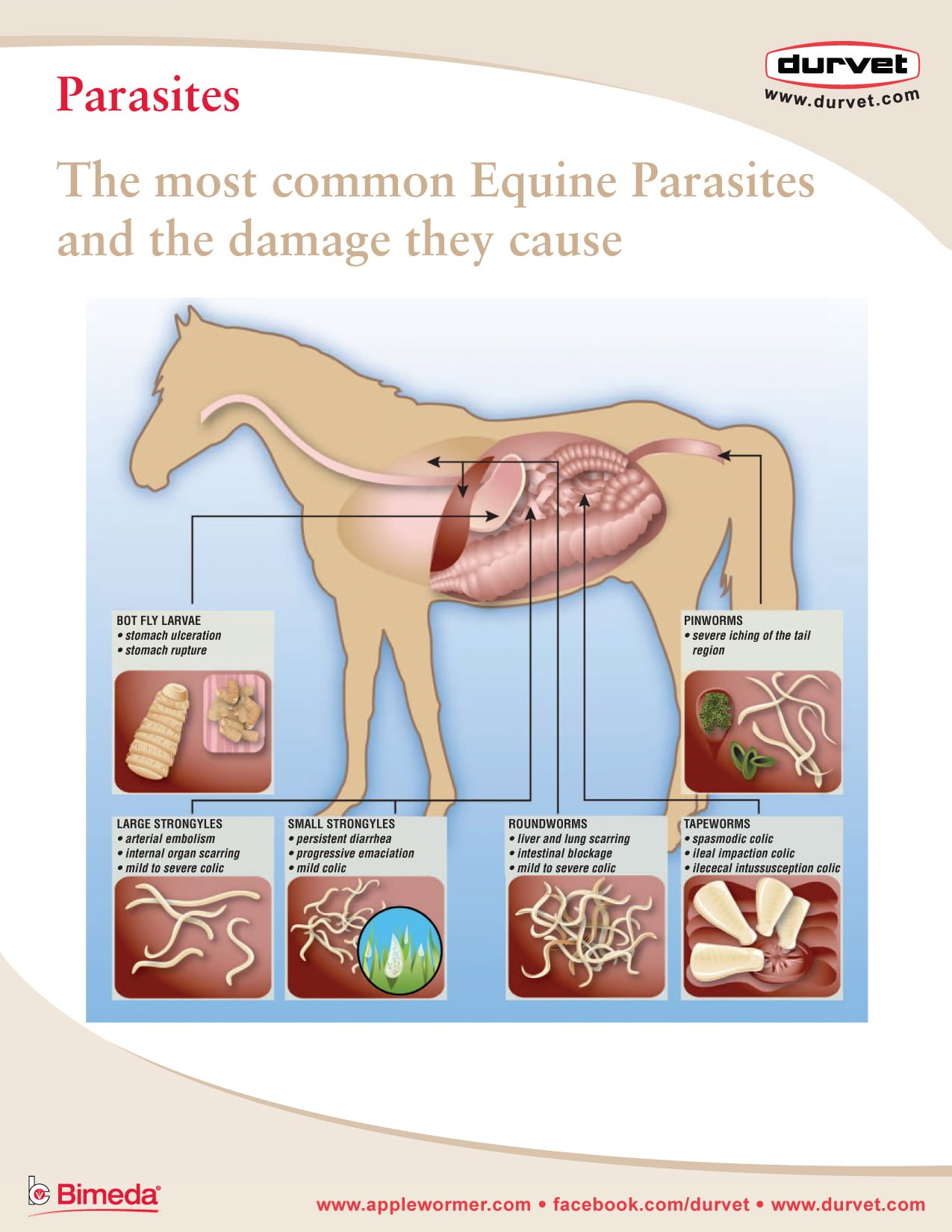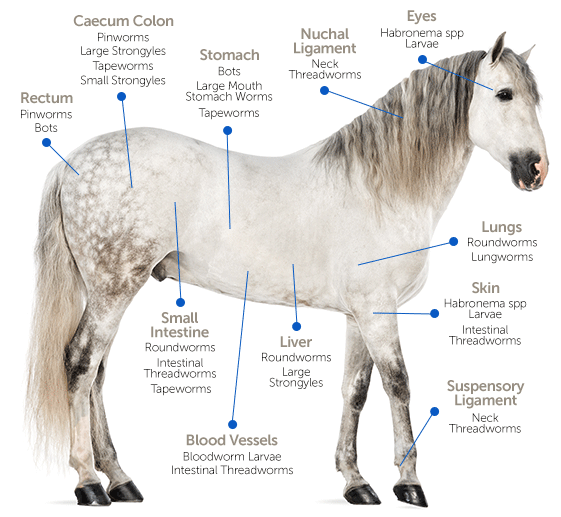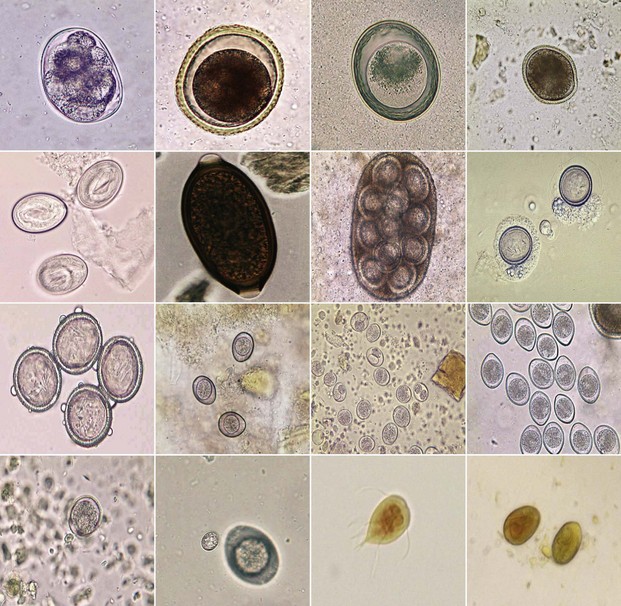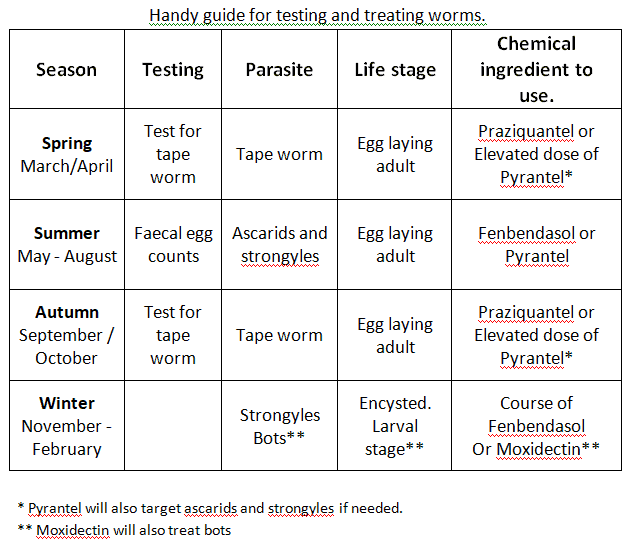“a new control strategy for an. Large and small strongyles appear as small, thin, spidery worms in the dung. Web testing is the most reliable way to identify whether a horse has worms or not. Learn about the signs, life cycles and control of common internal parasites of horses, such as roundworms, strongyles, tapeworms and pinworms. Web learn how to recognize the most common equine parasites in your horse's manure, such as strongyles, ascarids, tapeworms, and bots.
Web if you see worms you will want to identify and treat them with the appropriate wormer. If your horse has become thinner than usual but is still eating steadily, the cause may parasites. See photos and descriptions of each worm type and their symptoms. Having an effective control strategy in place is vital to help protect your horse from health. Web the best way to determine the deworming schedule for your horse is to involve your veterinarian and to perform fecal egg counts (fec) to determine:
If your horse has become thinner than usual but is still eating steadily, the cause may parasites. Web for a better understanding of worms in horses, review the descriptions and pictures below. Web horses are affected by a wide range of internal parasites, with varying life cycles. Large and small strongyles appear as small, thin, spidery worms in the dung. Web testing is the most reliable way to identify whether a horse has worms or not.
Large and small strongyles appear as small, thin, spidery worms in the dung. One of these tests can determine what species is present, provide an idea of how many adult. Web for a better understanding of worms in horses, review the descriptions and pictures below. If your horse has become thinner than usual but is still eating steadily, the cause may parasites. Web small redworms (cyathostomins) small redworms are the most common parasite in horses. Pinworm eggs are picked up by horses from. Ivermectin has become a popular equine anthelmintic choice. Web diagnosis of intestinal parasites in horses is based on finding eggs in the manure. Adult small redworms feed on the intestinal tissue of the horse and, in large. Web if you see worms you will want to identify and treat them with the appropriate wormer. Web horses are affected by a wide range of internal parasites, with varying life cycles. Web redworms, roundworms, pinworms, tapeworms and many other internal and external parasitic agents are ubiquitous in grazing horses and can adversely impact equine. Fecal flotation and fecal egg count (mcmasters) testing are used to identify the. Assess its weight and growth. See photos and descriptions of each worm type and their symptoms.
Web The Main Internal Parasites Of Horses, Ruminants And Alpacas Are Parasitic Worms (Helminths).
Ivermectin has become a popular equine anthelmintic choice. Large and small strongyles appear as small, thin, spidery worms in the dung. 1.87% oral paste for horses. Helminths include roundworms (nematodes) and flatworms (platyhelminths).
One Of These Tests Can Determine What Species Is Present, Provide An Idea Of How Many Adult.
If your horse has become thinner than usual but is still eating steadily, the cause may parasites. Pinworm eggs are picked up by horses from. Learn about the signs, life cycles and control of common internal parasites of horses, such as roundworms, strongyles, tapeworms and pinworms. Web a wec is used to identify infestation of common adult worm species including small (cyathastomins) and large adult redworms (strongyles) and large roundworms (ascarids).
Web Learn How To Recognize The Most Common Equine Parasites In Your Horse's Manure, Such As Strongyles, Ascarids, Tapeworms, And Bots.
Web for a better understanding of worms in horses, review the descriptions and pictures below. Web diagnosis of intestinal parasites in horses is based on finding eggs in the manure. Adult small redworms feed on the intestinal tissue of the horse and, in large. These tests confirm the species of parasite;.
Assess Its Weight And Growth.
Web if you see worms you will want to identify and treat them with the appropriate wormer. Fecal flotation and fecal egg count (mcmasters) testing are used to identify the. Web the best method for confirming whether or not a horse has worms is to have your vet perform a fecal egg count and blood test. Web testing is the most reliable way to identify whether a horse has worms or not.









